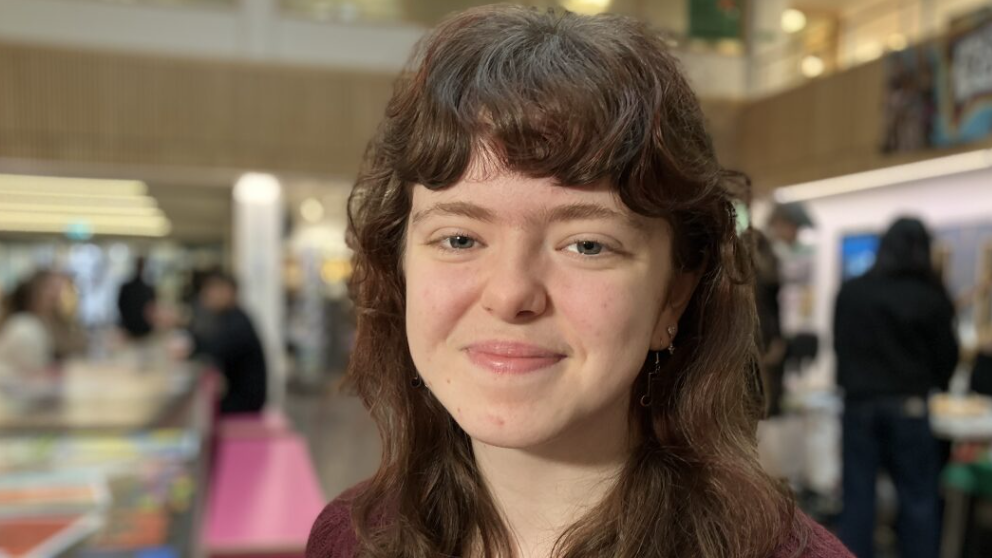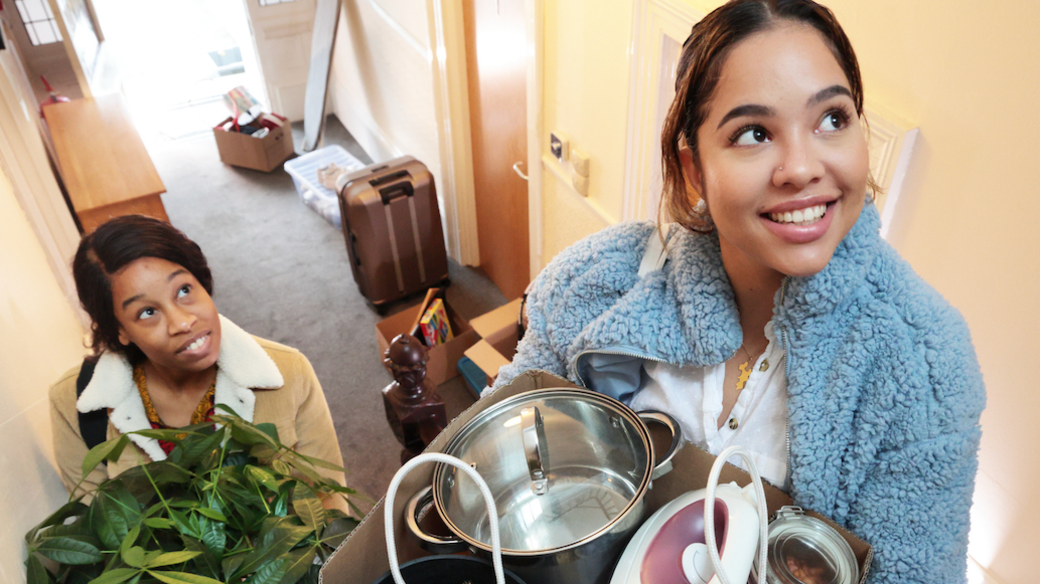'I fought for change to remove student housing stress'

Nathan Wyatt lived in the distinctive UEA Ziggurats halls of residence as a fresher
- Published
The rush to find housemates – and a place to live – for the next academic year has long been a source of worry for first-year students.
Undergraduates still settling into university life have to quickly commit to a joint tenancy with fellow freshers they barely know to guarantee a roof over their head the following September.
For Nathan Wyatt, now 23, it made for "awkward" living arrangements which led to him successfully advocating for new legislation which will now give students six months to make such a crucial decision.
"I knew I wasn't the only student in this situation, and that was one of the things that motivated me to speak up about it – I knew that it was unfair," said Mr Wyatt, who addressed MPs while a Students' Union officer at the University of East Anglia (UEA) in Norwich.
As a teenage fresher in 2020, he did not have the usual opportunities to meet others on campus because of Covid restrictions.
Having done his best to form friendships within his halls of residence, he reluctantly signed up for accommodation with four others rather than risk finding himself with no house and no-one to share it with.
They had been at UEA for less than six weeks and barely knew each other.
Months later, they could not stand each other.
"We felt so much pressure from landlords and estate agents to accept the property before we were ready," said Mr Wyatt, who still lives in Norwich.
"When you first start university you're so panicked and so aware of the pressures to sign up for these things, so you do it.
"You don't know the people you're living with at that point."

Nathan shared with a mix of male and female students, with different interests
Mr Wyatt could not avoid the inevitably uneasy houseshare of clashing personalities, as he had already signed a contract.
"By the second month, voices were raised, we stopped talking to each other, and we were doing our best to avoid each other and keep our own space," he said.
"We had a few arguments – one particularly heated one about a fire in the kitchen – and after that we just didn't talk to each other."
He slept elsewhere three or four nights a week – often on a friend's floor, and once at the UEA library – while paying £425 a month for his house.
"It was quite tough," he said.
"I blamed my housemates, but I soon realised that it was the landlords who pushed us into this situation for an easy buck.
"They can secure their accommodation for the next year and have the deposit in their bank account a year early; I can see the incentive for them to do so."

Nathan Wyatt still lives in Norwich and works as a youth adviser
Believing the system needed to change, he fought for a change in the law that means landlords cannot sign contracts with students before 1 March in the year the tenancy begins.
He spearheaded the issue as a Students' Union welfare officer in 2023, addressing MPs at the Students' All-Party Parliamentary Group during his first week in the role.
"I like to think of myself as one of many; a lot of students have fought for the same, especially the National Union of Students, who championed our cause," said Mr Wyatt.
"It was the parliamentary group that made all the difference. I managed to speak to the chair and I think it sold it.
"I never thought that the politicians would actually listen to me."
Two years on, it forms part of the Renters' Rights Act.
It has been described as the biggest shake-up of renting in England in more than 30 years and includes changes to fixed contracts, a ban on no-fault evictions and redress for "excessive" rent increases.

Ryan Jackson said the new law would have helped him as a first-year student
UEA students told the BBC they felt the law change would improve things, particularly for first-year students.
Final-year student Ryan Jackson said he had found things "tricky" as a fresher.
"You don't know where you're going to be in a year's time, who your peers are going to be – things are so changeable," he added.
"This gives you more time, freedom and space to decide."

Priscilla Abu said she felt pressure from those around her, rather than landlords
Third-year pharmacology student Priscilla Abu said that while she had not had any friendship issues, she had found it stressful to find housing within a short timeframe.
"If you don't, houses will go quickly or prices will go up," she explained.
"You need to find friendships first."
Fay Butler is in her first year of studying environmental science and looking for a place with friends.
"If I had that space to consider options and for things to settle down with friendships, I think it would be helpful," she said.
James Crickmore, a director of Eastern Landlords Association, told the BBC he could understand students' concerns, but finding a house early had worked for some.
"They can lock down their security, they are making sure they have got a property the following year and they don't have to think about it again," he said.
"There are certain benefits [to waiting] – they can make sure they are getting on – but they could fall out at any time in the academic year."

Fay Butler would rather have more time to form friendships and find a house
Get in touch
Do you have a story suggestion for Norfolk?
Follow Norfolk news on BBC Sounds, Facebook, external, Instagram, external and X, external.
Related topics
- Published4 November

- Published1 day ago
